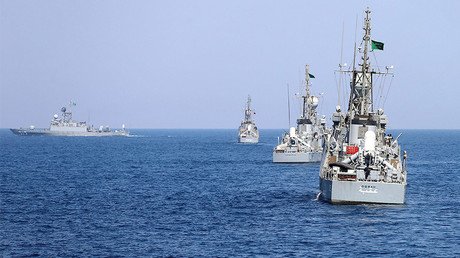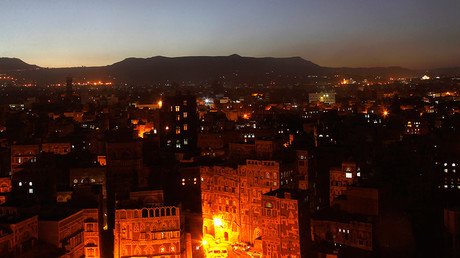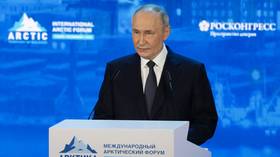Saudi Arabia agrees to lift blockade on Yemen as children face starvation & cholera
As children in war-torn Yemen continue to face severe malnutrition and a deadly cholera outbreak, Saudi Arabia has agreed to reopen air and sea ports following a week-long blockade. RT has met with children affected by the dire situation.
Riyadh's decision, announced earlier on Monday, comes four days after the United Nations Children's Fund (UNICEF) said that nearly 400,000 children in Yemen are "at risk of death from severe acute malnutrition." Children are also facing a deadly cholera outbreak, with 50 percent of the cases belonging to those under the age of 15.
The UN and over 20 aid groups warned the blockade – imposed on November 6 – could make things worse in the war-torn country. "The humanitarian situation in Yemen is extremely fragile and any disruption in the pipeline of critical supplies such as food, fuel and medicines has the potential to bring millions of people closer to starvation and death," the organizations wrote last week.
RT Arabic spoke with two young brothers who have felt the severe impact of the ongoing civil war and the blockade. Forced to quit school, the children now rummage through trash bins looking for tin cans which can bring their family a little bit of money. "We are taking care of our family...we collect cans to buy food and pay the rent, and to feed all our family," the older brother said.
However, the blockade will now be lifted. "The first step in this process will be taken within 24 hours and involves reopening all the ports in areas controlled by [Yemen’s internationally recognized government, which the coalition backs],” the Saudi mission at the UN said on Monday, as quoted by AP.
The ports referred to by the mission are located in Aden, Mocha and Mukalla. The mission says it has asked the UN to provide a team of experts to determine ways to prevent weapons from being smuggled in.
Yet, Abdu Ilahi al-Harazi from the Special Hospitals Union said that civilians should never be deprived of necessities simply because Riyadh is worried about weapons coming into the country. "Food and medicine are not weapons, they're things that have nothing to do with weapons. They shouldn't be manipulated," he said.
The chair of the Islamic Human Rights Commission, Massoud Shadjareh, echoed that sentiment. "There is no logical reason that we couldn't...take medicine and deal with the issue of cholera. There is no logical reason that we couldn't...give food and support to those who are starving...the only thing that is holding us back is the fact that the Saudis and their allies, with the help and support of the United States and the West, are putting very effective...blockade which no food, no medicine gets through," he said.
The Saudi-led coalition, which is backed by the US, launched an aerial campaign against Shiite Houthi rebels in March 2015, and later began a ground operation. The coalition is allied to Abd Rabbu Mansour Hadi, who fled to Saudi Arabia when the Houthis took power in Yemen. According to the latest UN figures, the conflict has so far led to the deaths of over 5,000 civilians. More than 8,500 people have been injured in the ongoing fighting.















